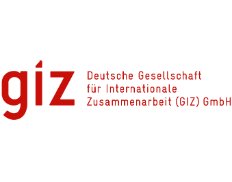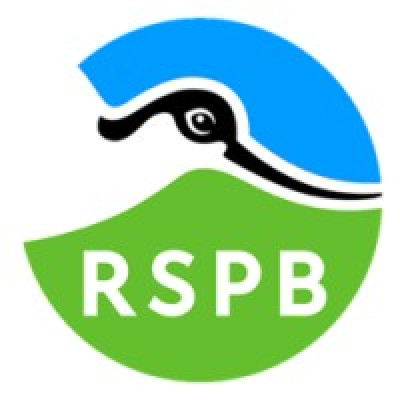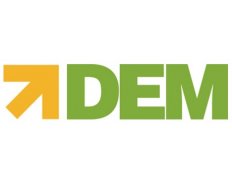Context
Carbon credits have gained attention as a carbon market instrument in recent years as climate ambition has grown, specially following COP 26 and COP27 recently. Given growing demand for carbon credits, practical and trusted guidance is critical to help buyers navigate the complicated carbon credit landscape and enable them to identify high-quality credits.
Achieving the goals of the Paris Agreement and Article 6.2 requires deep and fast decarbonization of our economies and the protection of bio spheric carbon stocks. Although many entities, including countries, sub-national jurisdictions, corporates, other organizations, and individuals, are stepping up their climate efforts and pledges, current action is still insufficient to achieve these temperature goals.
GIZ InS strives to leverage carbon credits for the benefit of achieving sustainable development results for its partners and clients worldwide. We are looking for advisory services to identify transparent and accountable mechanisms among current (voluntary-) carbon credit scheme initiatives and subsequent business models to enable us to achieve this objective.
Tasks to be performed by the contractor
The contractor is responsible for providing the tasks outlined below:
- Article 6 carbon credit cycle: Provide an overall assessment and business case for Article 6 carbon credit programmes in relation to the Swiss Carbon Law. The assessment will provide direct recommendations on financing mechanisms and partnerships for a specific project currently being implemented by GIZ InS in Ghana, and using this project as a case study, be used to develop a financing model and project set-up for future similar projects;
- Provide a detailed analysis and recommendation and consider the following aspects:
- Funding, contracting, and governance model.
- How to obtain a pre-investment to pay for the project before credits are generated and sold, including an indication of the timeline needed for return on investment;
- Consideration of existing legal requirements;
- Any other considerations based on your expertise;
- Other Article 6 project examples should be included in the model, including lessons learnt.
- Provide a detailed analysis and recommendation and consider the following aspects:
- The carbon crediting program. The provisions of a carbon crediting program, what type of projects are eligible, how double counting is avoided, how risks of non-permanence are addressed, or what environmental and social safeguards projects must adhered to;
- A key element of the methodology is therefore the assessment of the provisions of the carbon crediting program under which a carbon credit is issued.
- Carbon Insetting should also be assessed – with specific focus on intentional reduction of a company’s scope 3 emissions within their own supply chain. And how can international textile companies support landscape projects that work on regenerative agriculture, agro-forestry and landscape restoration (e.g. through FMNR or water harvesting techniques) on reduction or sequestration of carbon while also supporting the protection of biodiversity and restoration of ecosystems.
- Provide an overview of the current carbon emission reduction verification standards and methodologies per sector (including but not limited to renewable energy & energy efficiency, agriculture - in particular cotton, and REDD+).
- The overview must to the minimum include standards per sector and two project examples per standard, the quantification methodology applied and its pro’s and con’s, and at least 2 Monitoring and Results Verification agents per standard who have completed at least 1 MRV assignment for that standard; Links and references to these standards, examples, and agents should be included.
- Overview of the MRV (Monitoring, Reporting, Verification) requirements to measure the amount of GHG emissions reduced by specific mitigation activities, such as reducing emissions from deforestation, different agro-forestry approaches as well as increasing below ground carbon through sequestration activities by promoting regenerative agriculture approaches specifically within cotton and crop rotation production systems.
- The potential structures and financial models where GIZ InS could operate as an actor in carbon finance:
- Explain the differences between distinct carbon markets (e.g., SDM, ITMOs, CORSIA, VCM, domestic carbon markets, etc.), the scale of the markets, and identify which markets InS is best placed for.
- Provide an overview of the carbon finance cycle and market structure: what type of organizations are involved in developing, verifying, and delivering carbon projects, and which of those could be complementary partners to GIZ InS. Highlight relative strengths and weaknesses of GIZ InS in relation to potential partners, and organisations providing similar services;
- Provide recommendations to the most suitable positioning and role for GIZ InS in the carbon finance project cycle, the competences and resources required to deliver on that role, and which partners identified under (b) above could be engaged;
- Provide advice on the financial carbon cycle, and how (pre-) finance for projects can be attracted through investors or other (non-credit) mechanisms for GIZ InS to deliver on its role in the carbon cycle, with specific emphasis on the project in Ghana;
- Provide a detailed overview of the quantification methodologies applied to determine the emission reductions and removals. Quantification methodologies specify how exactly the emission reductions and removals should be determined or how additionality is being assessed.
- The methodology should separately consider the robustness of the quantification methodologies applied to issue carbon credits.
- At least five credible verification methodologies, including but not limited to the Swiss Carbon Law, VERRA and Gold Standard, should be included in this overview.
- The host country in which the activity is implemented is an important actor in the carbon credit cycle. For example, some carbon crediting programs have different requirements for different host countries, while at the same time countries have different regulatory policies in relation to carbon credit schemes or domestic carbon markets, Article 6, and their NDCs.
- Please provide an overview of the relevant legislation and policies with regard to carbon credits for the selected countries, and provide a detailed assessment of requirements, limitations, and examples from Ghana, Tanzania, and Namibia.
- For the other countries that are mentioned, please provide a policy review with one or two case studies (project examples) per country.
- The selected countries are Ghana, Ethiopia, Tanzania, Namibia, and Rwanda. GIZ will provide sector specific selection criteria for each country.
- In Ghana, the assessment should focus on the current project under implementation. Field missions are not foreseen for this activity.
- Relevant information, guideline, and/or policy from the GHG Protocol, The climate registry, Partnership for Carbon Accounting Financials (PCAF), ISO14001/14064 and Global Logistics Emissions Council (GLEC). Please provide an overview of such policies and requirements in relation to the carbon credit schemes, and in particular the case in Ghana, which need to be taken into account for the assessments carried out above.
- In your final report, please also consider key safeguards and risks to be mitigated when working on carbon credit generating projects.
- This should at least include gender mainstreaming, youth participation, impact on vulnerable groups, as well as conflict sensitivity.
- Also include at least one page on potential reputational risks to GIZ, particularly by working with certain companies, organisations, or standards; also in relation to greenwashing;







